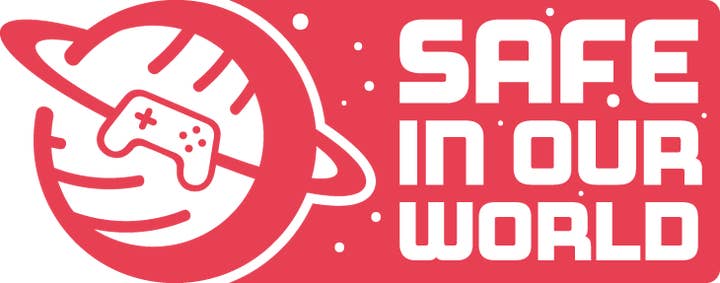Games firms "have to be ready" to support employees with mental health issues
Safe In Our World's Kim Parker-Adcock offers advice on how to cultivate a more understanding work environment
One in four people experience mental health issues every year.
That's according to Mental Health First Aid England, whose research also shows that such issues affect 792 million people worldwide. In addition to the human impact, this results in millions of working days lost and business costs of billions every year.
The recent UKIE Games Industry Census showed that 31% of respondents reported anxiety, depression or both -- notably higher than the national average of 17%.
As awareness of these issues improves, there is a growing interest in the games industry about what to do if a member of the team experiences them. For Kim Parker-Adcock, vice chairperson on the board of trustees for new mental health charity Safe In Our World, this consideration is no longer optional.

"It will [occur in your business]," she tells GamesIndustry.biz. "There's no question now, it will. It used to be unusual and it's not anymore. You have to accept it's out there. You've got to be ready, and giving your employees assurances that you're ready, that you're aligned with a guide or a charity -- not an organisation that's going to make money, or a training company."
Throughout her career, Parker-Adcock has seen first-hard the consequences of unsupported employees whose issues have worsened. Her experience ranges from the receipt of death threats from someone who evidently had an underlying condition, to the threat of a tribunal for disability discrimination after another employee was laid off for their poor performance, their own issues also undisclosed. She has even lost peers and friends to suicide.
"I look back at these now and now I know better," she says. "Would I do things differently? How would I do it differently? The big thing for me as a small business owner is to not try and do everything myself. So what this taught me is where to get the help, at what point you have to hand it over. And it's actually a lot earlier than you might think.
"As the law stands, you can't ask somebody if they're ill, if they've got a disability, you can only ask if there's any adjustments that you could [do]. So because it hasn't been something people can talk about -- which is what I'm all about -- it's trying to get people to talk about it. As a small business owner, you're trying to guess. But if you get it wrong, you can end up making them ill. Or they can make themselves more ill."
Parker-Adcock recently completed an MHFA training course, which laid out the ALGEE method: a process for ensuring you have the right support in place for any employees experiencing emotional health issues.
THE ALGEE METHOD
"You have to accept it's out there. You've got to be ready, and giving your employees assurances that you're ready"
A: Assess
You need to judge whether you think there's a risk of suicide or harm. Parker-Adcock says the first thing employers need to do if they think one of their staff is in trouble is simply approach them. You cannot act without more information -- doing so could exacerbate the situation. But that approach is crucially tied with the next step.
L: Listen
It's important to listen in a "communicative and non-judgmental way." Parker-Adcock warns that it's easy to slip into the old mentality of "Well, pull yourself together" or "Go get a coffee and you'll be fine" -- but this is far from helpful.
"A lot of the time, people are trying to let you know without letting you know," she says. "You need to give them the opportunity."
G: Give them support and reassurance
It's vital that employers get as much information about any help each person is already receiving, but also look into what other help is available in your area. Some regions -- such as Parker-Adcock's home county of Essex -- have a strong support network, so get in touch with your local mental health department and find out what is available.
"The different levels are extraordinary, and no two people are the same," Parker-Adcock says. "You can't possibly try and diagnose that person -- that's for the professionals. As a business owner, HR or line manager, you just need to know what you need to do to support that person and make the adjustments they need."
Adjustments can range from flexible working hours to more frequent breaks, or even just five minutes to talk to someone every now and then. Some people might be happy to talk at their desk, others may prefer the privacy of a meeting room. Everybody's requirements will be different.
E: Encourage the person to get professional help
If they aren't already receiving support, urge them to apply for some -- if only because the pressures of work may not be the only issue. Stress experienced in the workplace could be hiding a more specific condition that only appears to manifest during their day job.
"Work might not even be the problem at all," says Parker-Adcock. "In my experience, nine times out of ten, the problem is also outside of work, because people feel like they need to change something and that's very, very familiar for anxiety. They need to change something but the only thing they can control is work. So they get signed off [for their leave], which is even worse, because they feel they're going to let you down.
Another important message, which can help encourage people to seek support, is that experiencing anxiety, depression or other issues with your emotional health has just as much impact as breaking a rib, for example.
"A mental health condition is exactly the same as a physical one, so you have to treat it the same," says Parker-Adcock. "Should they have time off for their mental health? Would you have time off for a broken leg? Would you need time to recover? You need to get professional help -- you wouldn't try and fix your broken leg on your own. So it's about getting them to accept that actually, that's okay, and they can talk about it."
"A mental health condition is exactly the same as a physical one. You need to get professional help -- you wouldn't try and fix your broken leg on your own"
E: Encourage self-help and other support strategies
Ask them who they have around them that may be able to help. Are there members of their family, close friends, or perhaps even members of their team who they can go to for support? Parker-Adcock emphasises that it comes down to the individual and "who they are happy to have help from," rather than assigning them someone.
It's also worth asking them if the situation is something the rest of their team ought to know in order to help understand them better. This might also build up an environment for support.
The ALGEE method is about ensuring anyone experiencing mental health issues on your team gets the professional help they need. There is also support available to employers, such as HR consultancies, that can ensure they take the right steps to better implementing this method and dealing with any situations that may occur.
Safe In Our World is also conducting primary and secondary research into mental health issues, and lobbying the government to promote games as having a positive effect on mental health. As more and more games professionals encounter these issues, it's important to have a message of support out there.
"The point of Safe in our World is awareness," says Parker-Adcock. "That actually you're not unusual, and it isn't something you have to hide. I think this generation is a lot better, probably because they almost wear it as a badge of honour. But at least they talk about it. But you can't always help them -- and I think this is something you need to accept."
She adds that even when people receive the support they need, that does not mean the issue has been permanently resolved. Ongoing conversations will ensure you're doing all you can to support those who have already identified their issues, and constant consideration of your processes will help prepare for future cases.
"It needs to become a natural conversation, something that actually becomes part of HR, it becomes part of ongoing management, becomes part of a meeting every month. And it becomes something that the teams are open and active about."
She concludes: "Mental health does qualify as a disability. So you have to be aware of that. You are required to make reasonable adjustments within your business to help that person be successful."
The Games Industry.biz Academy also published a more in-depth look at how to approach mental health issues in the workplace, make your company a safe space and the many ways to provide support to the employees who need it.

